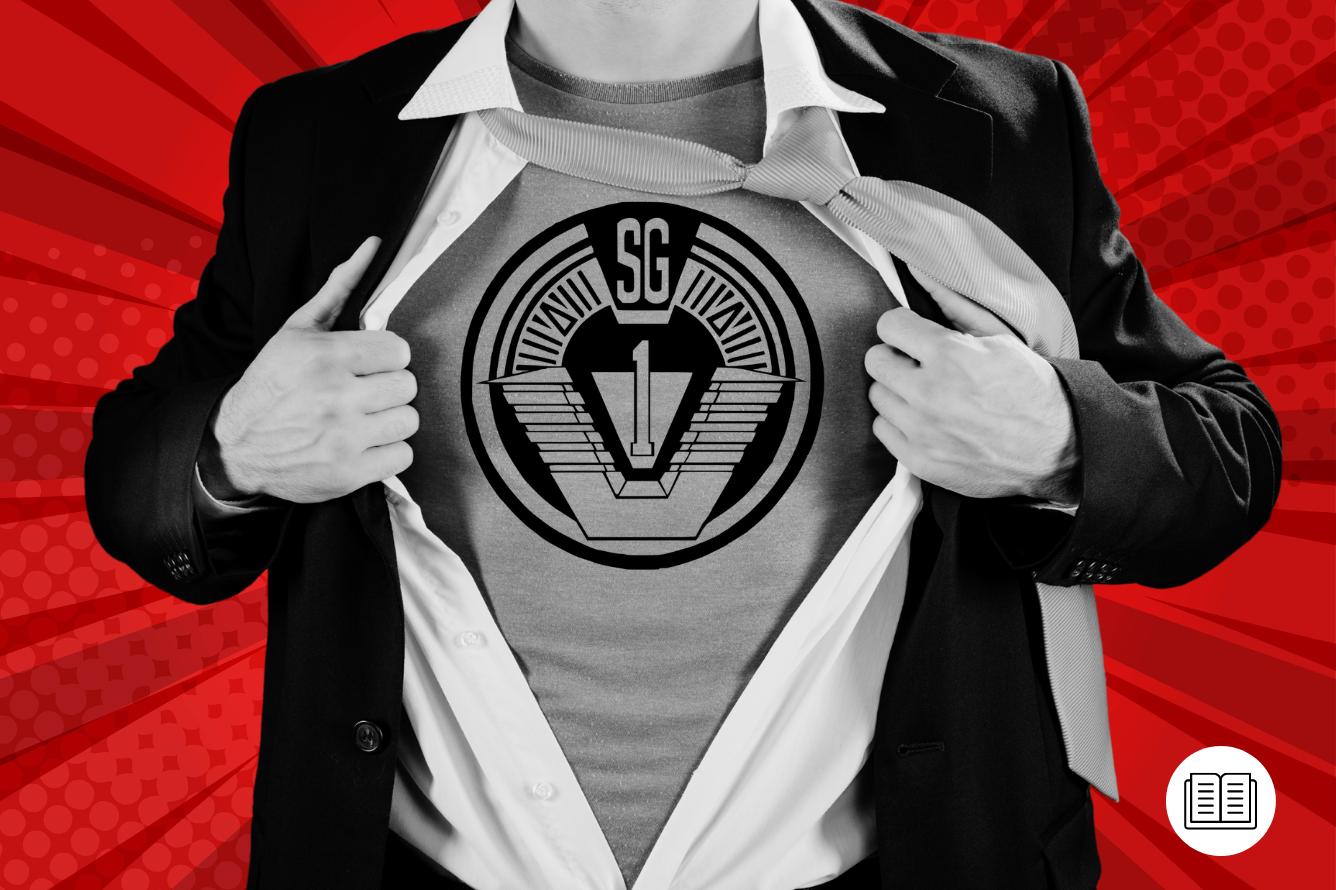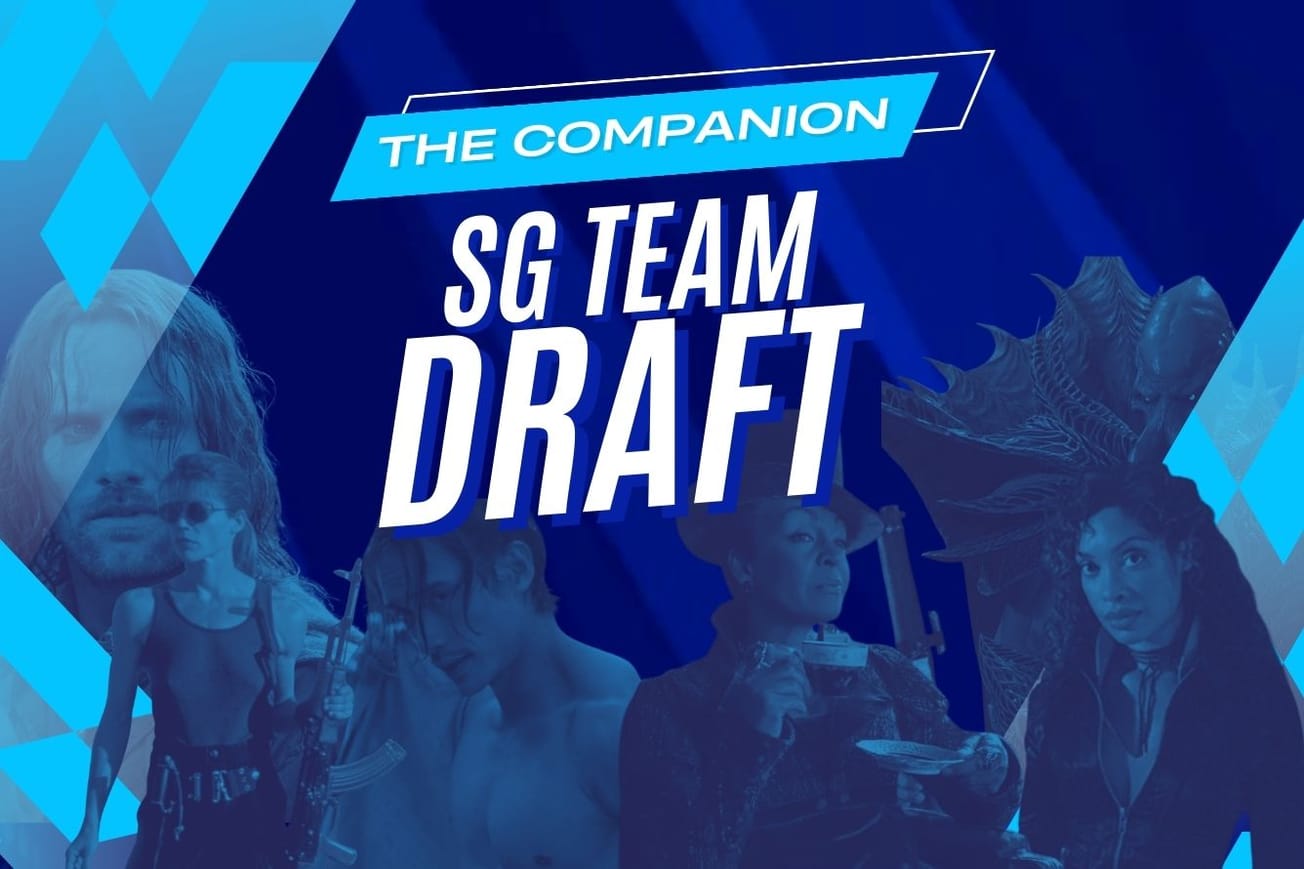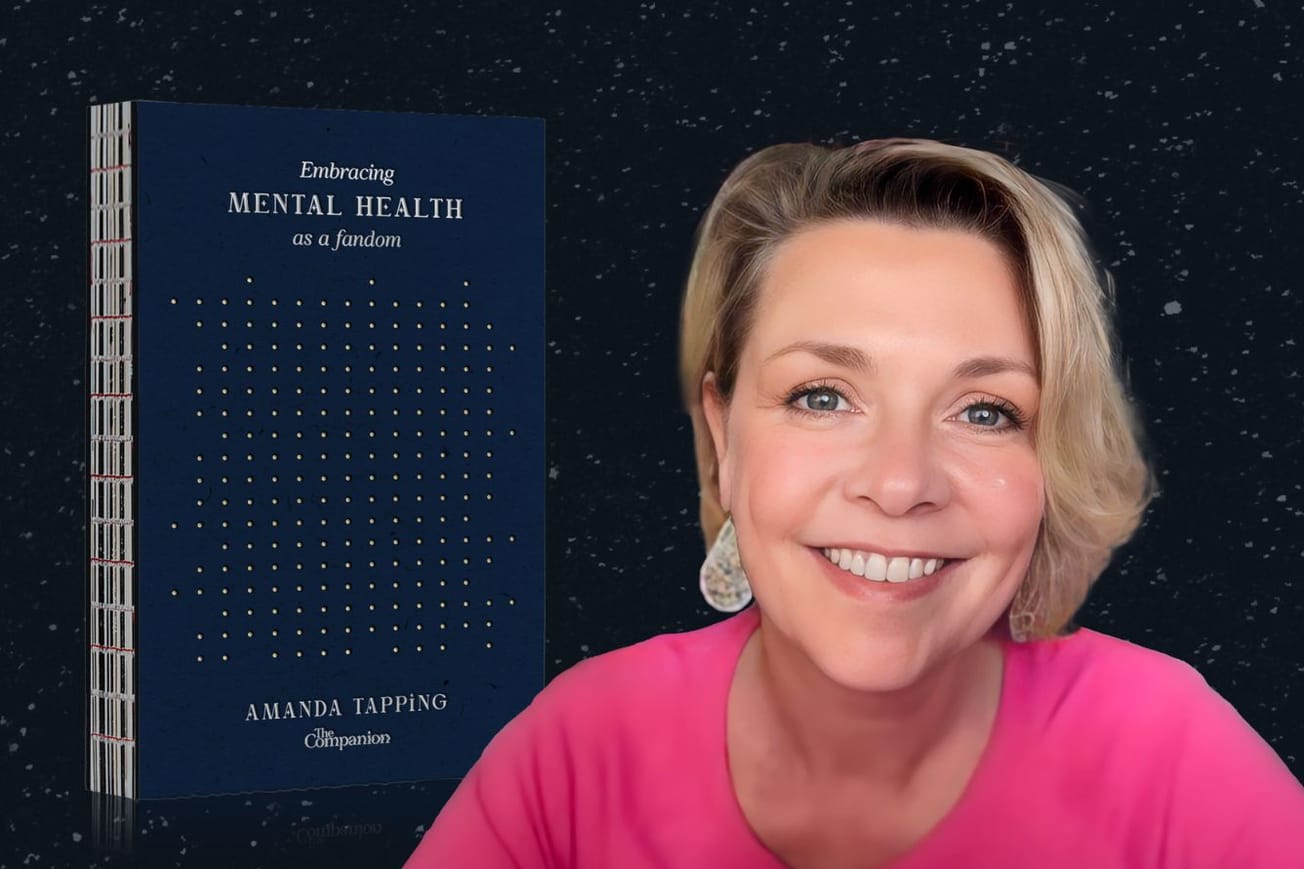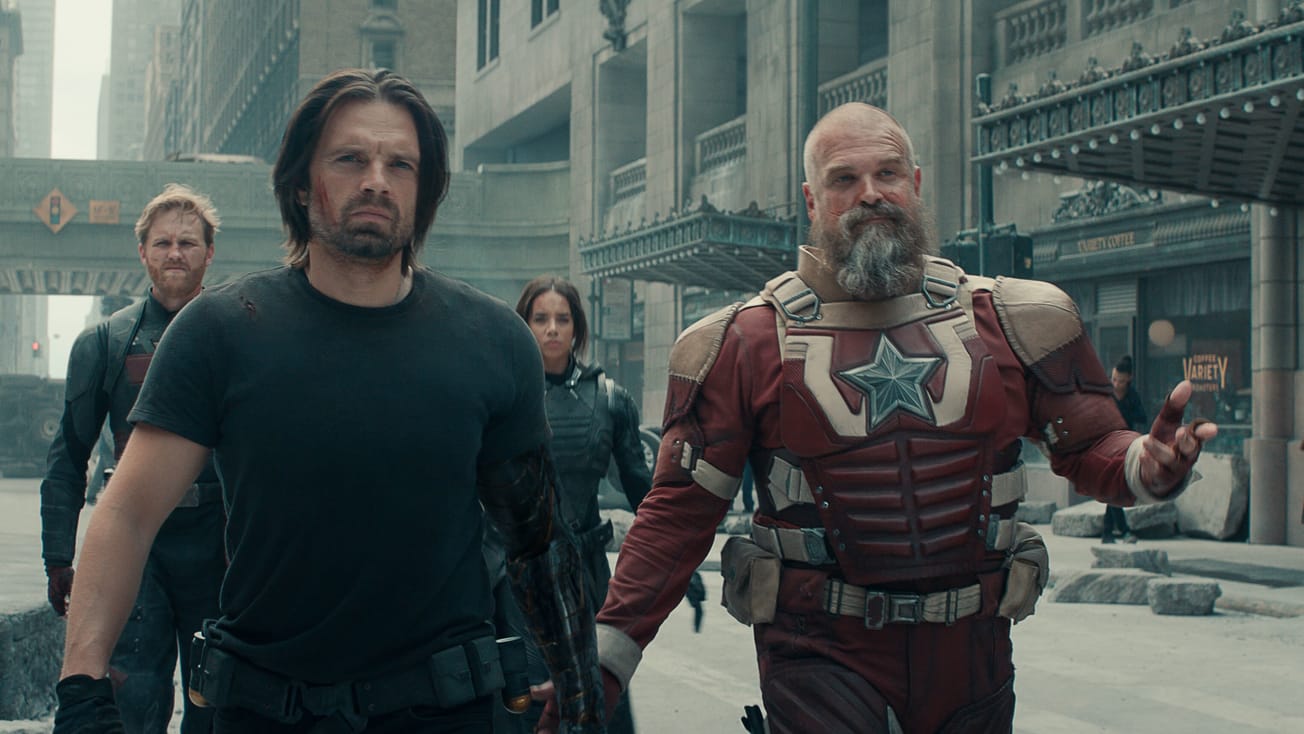Are SG-1 inherently good? Or are they only so because of the constraints placed on them? Remove those constraints, and would they still be heroes?
From Isaac Asimov to Frank Herbert, Arthur C. Clarke to Gene Roddenberry, science fiction writers have always explored deep philosophical questions like the ones above. But what Stargate SG-1 uniquely accomplishes is the blending of philosophy with humor, action, and most importantly, heart. An underrated example of this balance is the Stargate SG-1 episode ‘Upgrades’ (S4, Ep3).
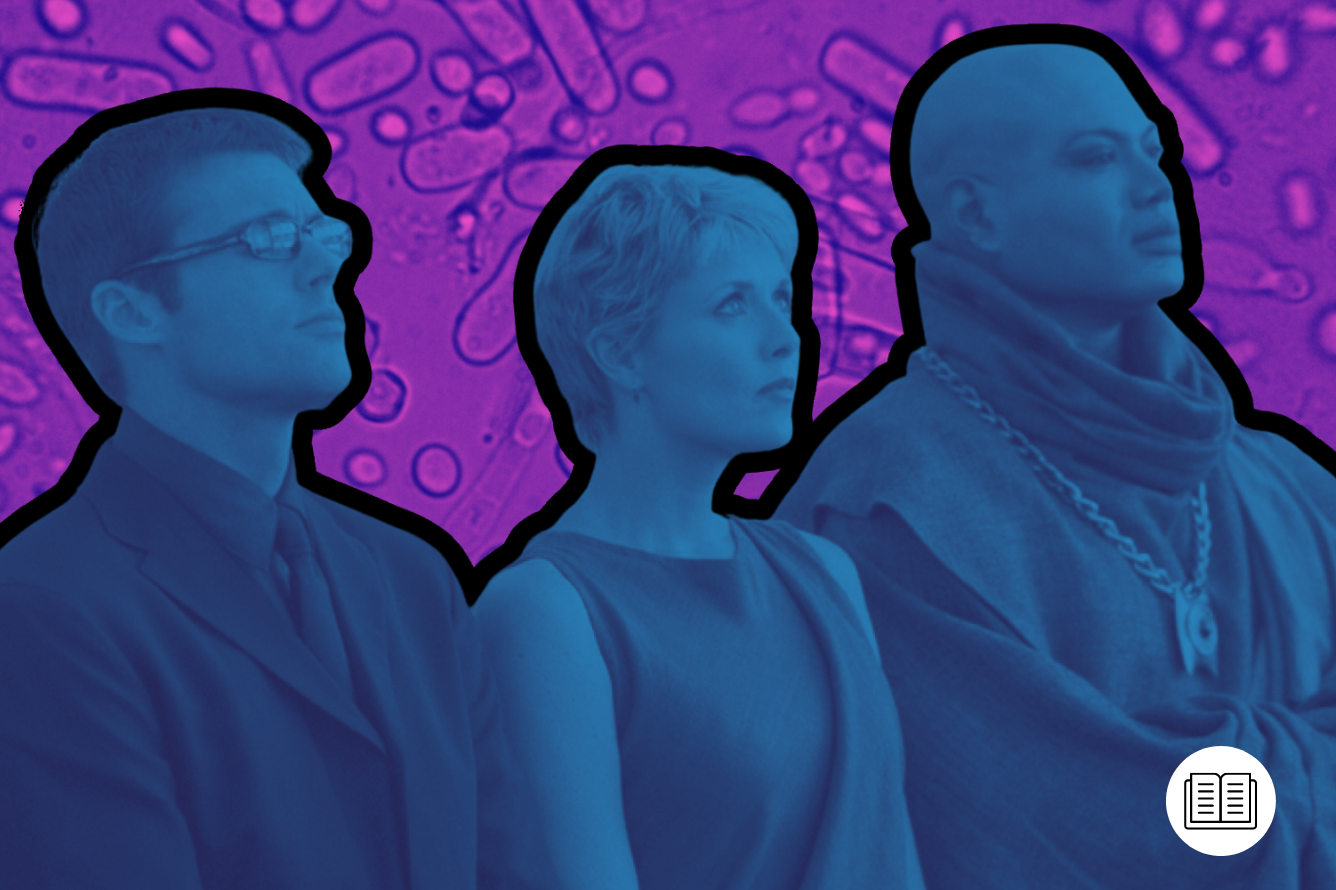
Now, you may be scratching your head at that one. After all, ‘Upgrades’ is the humor-laden, purely episodic adventure that, on the surface, doesn’t seem to go that deep into the “big questions.” But amid the serious protein cravings and scantily-clad Tok’ra, the episode raises questions about the nature of power and the effect it has on presumably “good” people.
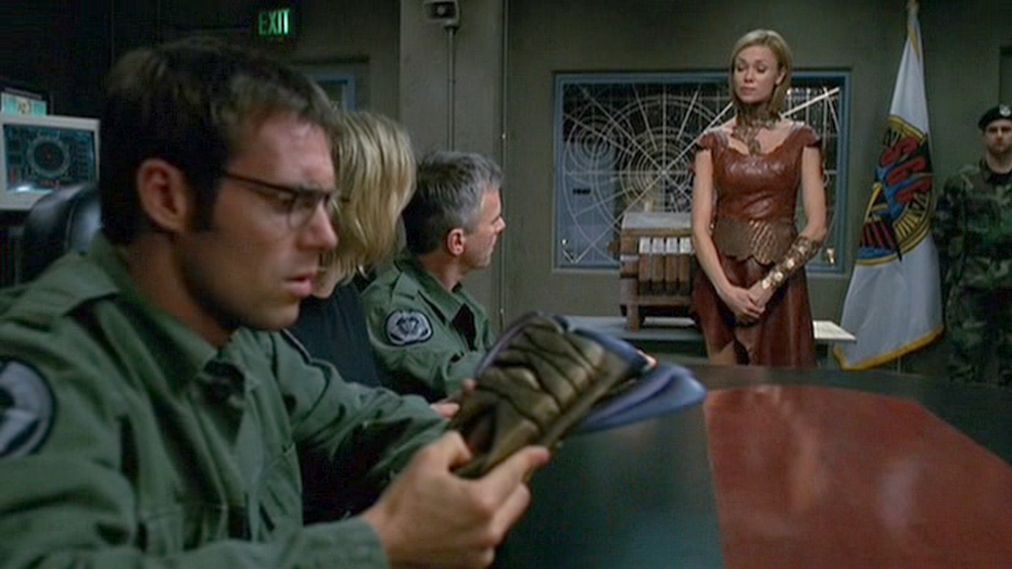
For those who need a quick refresher, in the Stargate SG-1 episode ‘Upgrades’, a Tok’ra scientist arrives at Stargate Command with three armbands created by an extinct alien race called the Atenieks. These armbands imbue the wearers with superhuman speed and strength, Jack O’Neill (Richard Dean Anderson), Samantha Carter (Amanda Tapping), and Daniel Jackson (Michael Shanks) learn quickly after donning them.
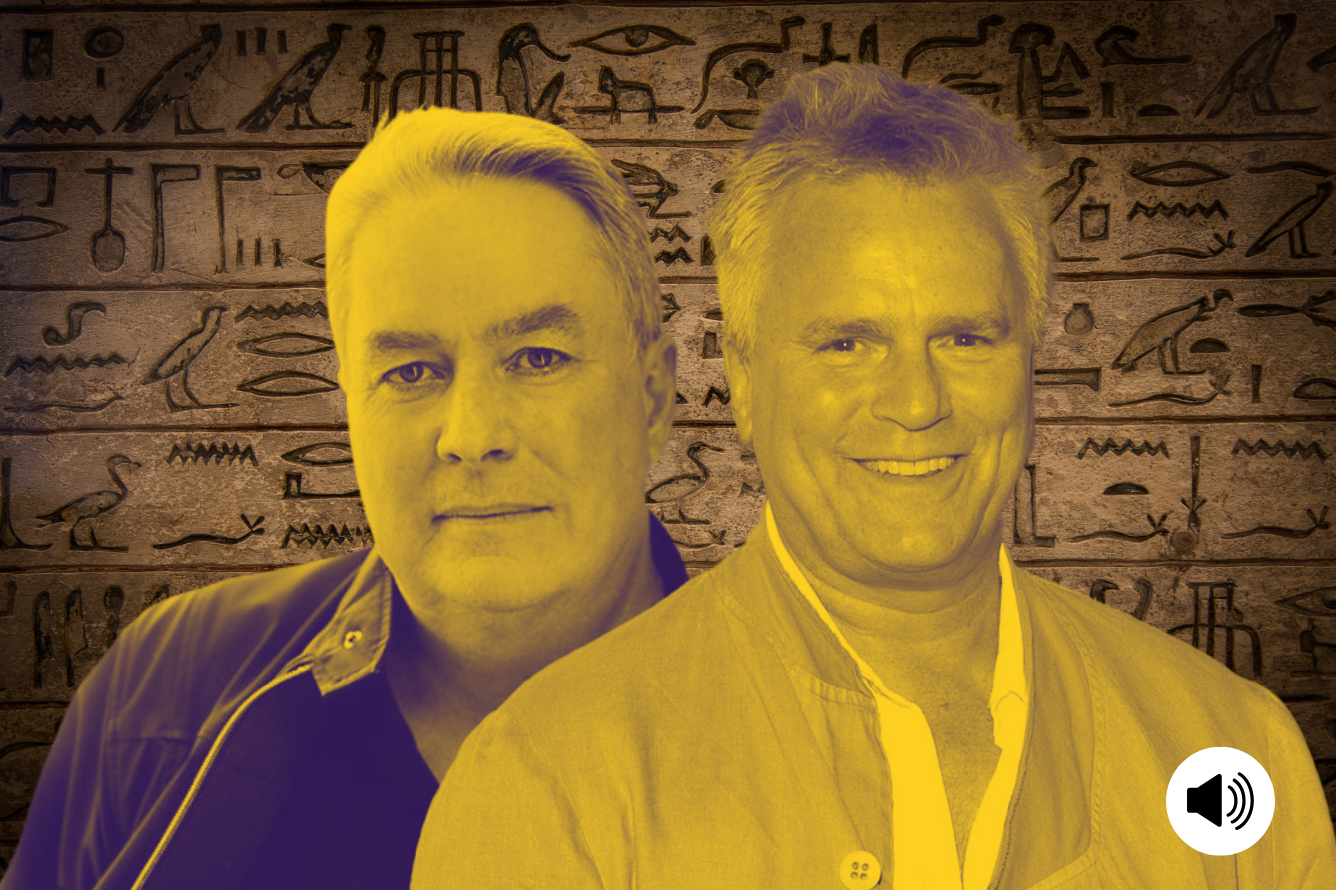
As soon as this happens, their personalities change dramatically, becoming rash and impulse-driven. Jack becomes a literal human wrecking ball, Daniel instigates bar fights, and Sam takes her workaholism to the next level. Not only that, but the trio completely casts Teal’c (Christopher Judge) aside—you know, the guy who’s basically risked his life for them more times than they can count.
Although General Hammond (Don S. Davis) writes off their behavior with a convenient “you were under the influence of alien technology” at the end of the episode, I have to wonder: Did the armbands really change their personalities, or reveal what’s been hidden beneath the surface all along? If so, what does this mean about our heroes: are they good by nature, or only because they don’t have the power to be bad?
Jack O’Neill and Samantha Carter in ‘Upgrades’
To say that Jack O’Neill and Samantha Carter are the personifications of military is like saying water is wet, the Goa’uld are evil, or that SG-1 repeatedly owes their lives to Walter Harriman (Gary Jones). Their commitment to the US Air Force is the foundation of their whole being. Even after all they’ve accomplished and sacrificed, neither of them can seem to retire (especially O’Neill).
Ironically, the thing the two characters have most in common is the very thing that keeps them from acting on the butter-thick romantic and sexual tension that looms over the show’s 200+ episode run. Yes, that includes the two seasons when O’Neill wasn’t a main character—that’s how palpable it was!
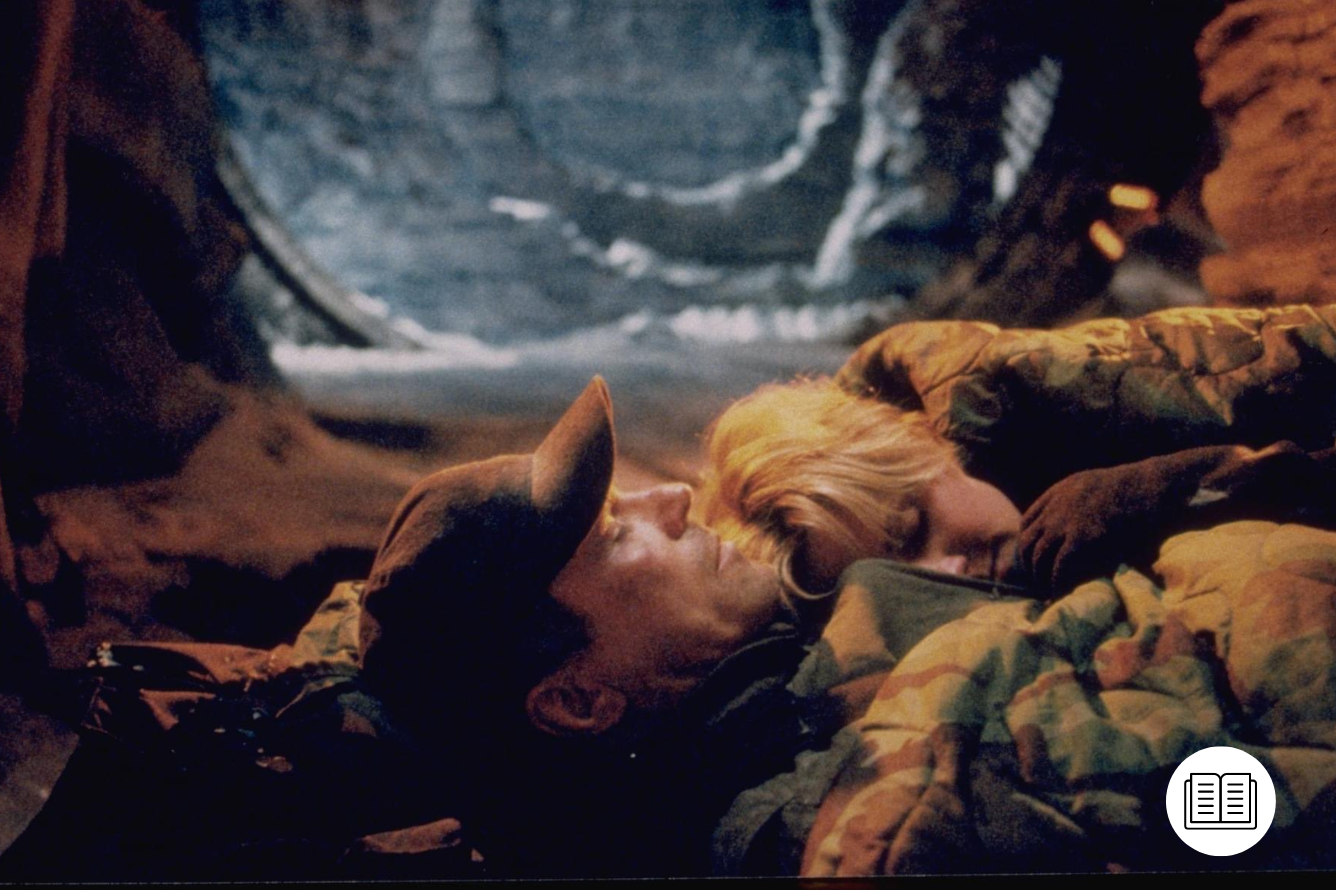
You may be thinking: But O’Neill and Carter didn’t do anything inappropriate in this episode. Sure, they defied multiple direct orders, but it’s not like that hasn’t happened before.
Samantha Carter: So has it occurred to anyone that we’re defying a direct order?
Daniel Jackson: Well, it’s not like we haven’t defied orders before.
Samantha Carter: Yeah, but that was to save Earth.
Jack O’Neill: Earth. Steaks. There’s a difference?
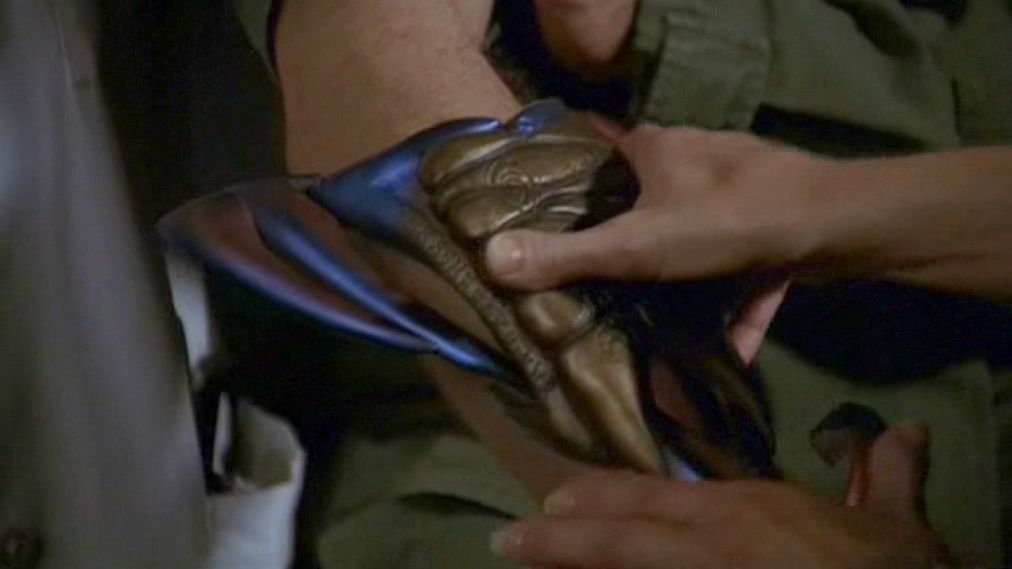
Jack adds later:
“The fact that we were defying orders didn’t occur to us until we were actually defying them.”
But the thing is: they actually did. Technically, ‘Upgrades’ gets a little retcon treatment two episodes later in ‘Divide and Conquer’ (S4 Ep5). Since that episode is canon, we have to consider it in our analysis.
When forced to recount the events of ‘Upgrades’ while hooked up to a Tok’ra lie detector, O’Neill reveals his true reasons for not leaving Carter behind during their mission to destroy Apophis’ mothership.
Jack O’Neill: I didn’t leave, because I’d have rather died myself than lose Carter.
Anise: Why?
Jack O’Neill: Because I care about her, a lot more than I’m supposed to.
Of course, it’s easy to argue that this is in keeping with O’Neill’s character, armbands be damned. After all, other than “For cryin’ out loud!”, his top catchphrase is: Never leave a man behind.
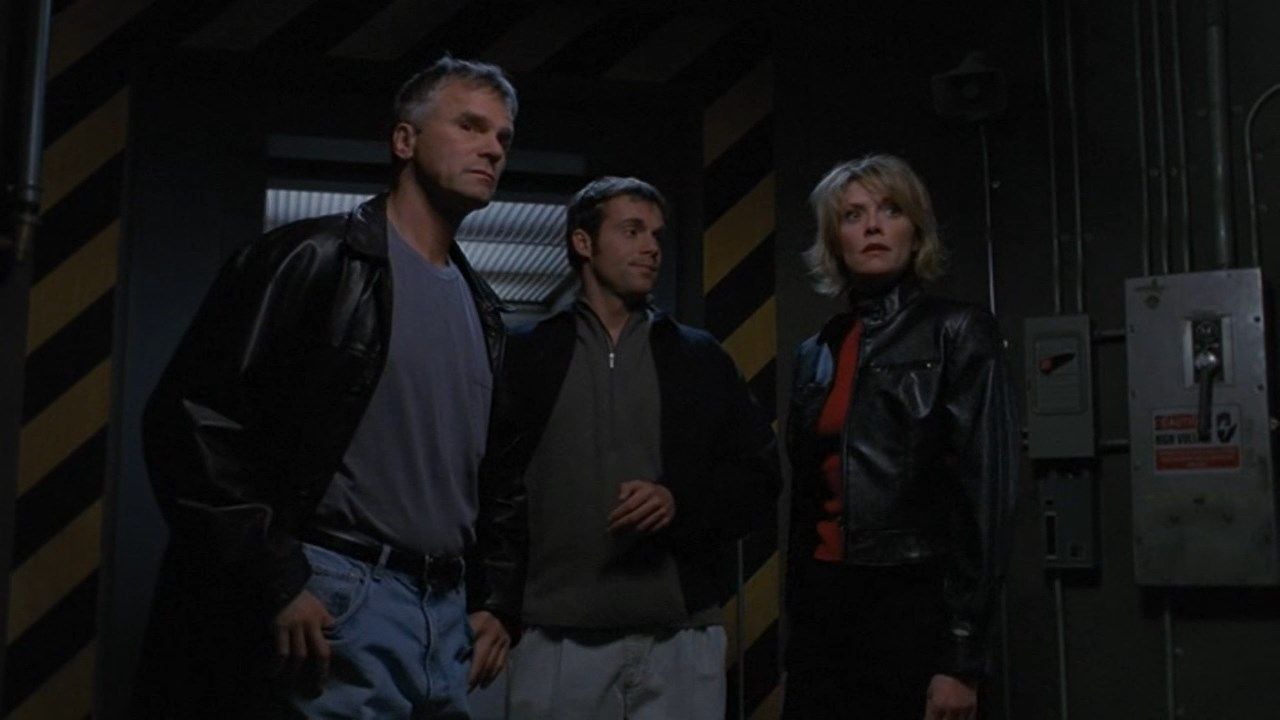
But that’s the thing. Had O’Neill admitted to refusing to abandon a subordinate officer and valuable member of his team, that would have been one thing. That’s not what he admitted to. (Nor did Carter, who presumably gave a similar confession off-screen). So we have to consider this as a violation, on both their parts, of their core values.
But is there really a problem here? I mean, who among us hasn’t made less-than-ideal decisions in the name of love? Should we be so hard on them for making those choices?
Sure, if it was just you or me. But this is O’Neill and Carter that we’re talking about. The Air Force, and their commitment to it, is where they both find their source of meaning, their purpose in life. That level of commitment is about more than simply donning a uniform and going out on missions. It’s about subsuming their personal desires and feelings for a larger cause, joining together to create an unparalleled fighting force.
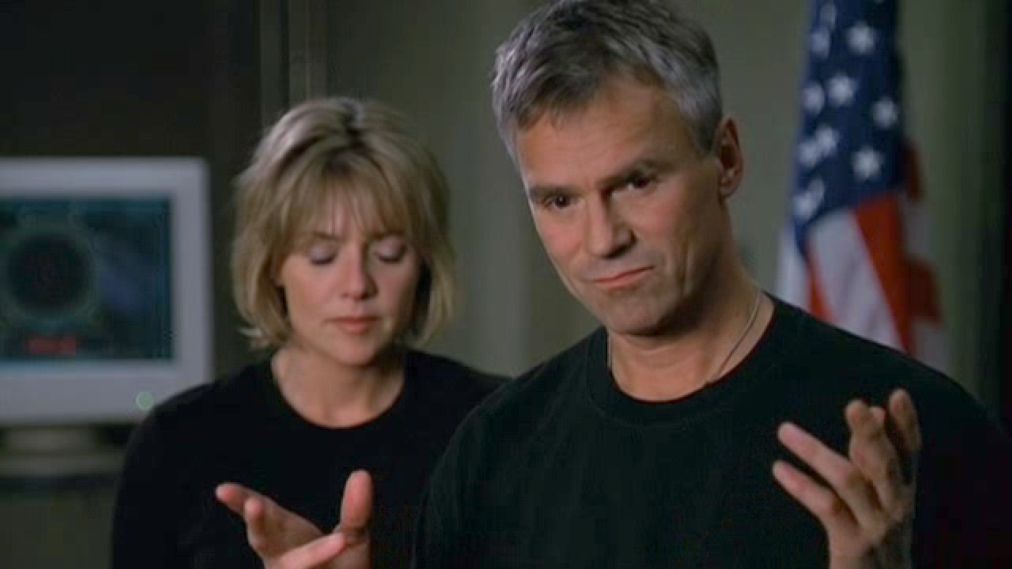
By giving into their feelings, O’Neill and Carter place their deep personal desires above their higher commitments. Although they aren’t physically wearing the armbands in this particular situation, the effects on their brain chemistry surely haven’t worn off completely. Still riding the power high, they push aside the Air Force and focus on themselves. This is deeply out of character for both of them and shows that their loyalties are subject to change.
Daniel Jackson in ‘Upgrades’
If SG-1 has a beating heart, it’s Daniel Jackson. He’s always the one raising the moral and ethical questions, prompting everyone to think before they act (especially O’Neill). He considers the perspectives of all parties involved, not just himself and his tribe. He’s like the annoying bee buzzing around your yard: you just want it to go away, but you need it to keep your flower beds from dying.
So when he transforms into a rabble-rousing, naquadah-hauling dudebro in this episode, we have to ask the question: Is his heart just an act? Does he fall into that pattern because of a perceived “weakness,” only to transform as soon as he finds “strength”?
Given that the same thing occurs in ‘Absolute Power’ (S4, Ep17), there’s a strong case to be made for: yes. What’s more, when he ascends to a higher plane of existence, he is repeatedly chastised for using his powers to interfere in the lower plains, particularly to protect those especially close to him, without considering the cosmic ramifications.
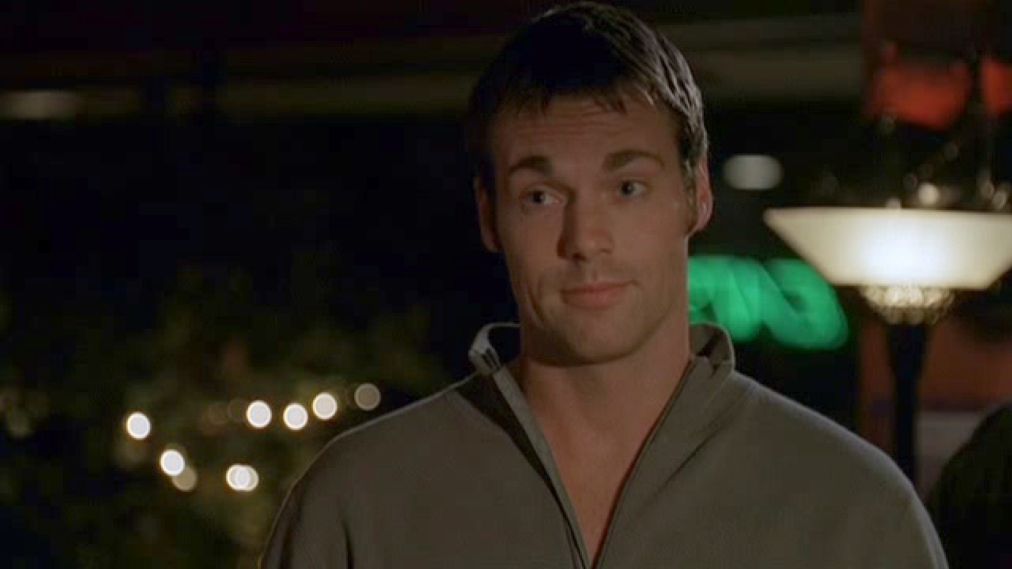
At first glance, then, it seems like when Daniel gets power, he wields it to protect himself and his own. That seems to run contrary to his typical bleeding-heart facade.
We can understand most of Daniel’s actions as responses to trauma. It’s implied that he was bullied as a child. On top of that, his parents died in a terrible accident, one that he was unable to prevent. Then he lost his wife to the Goa’uld. Basically, he’s been beaten up—both physically and emotionally—in virtually every aspect of his life.
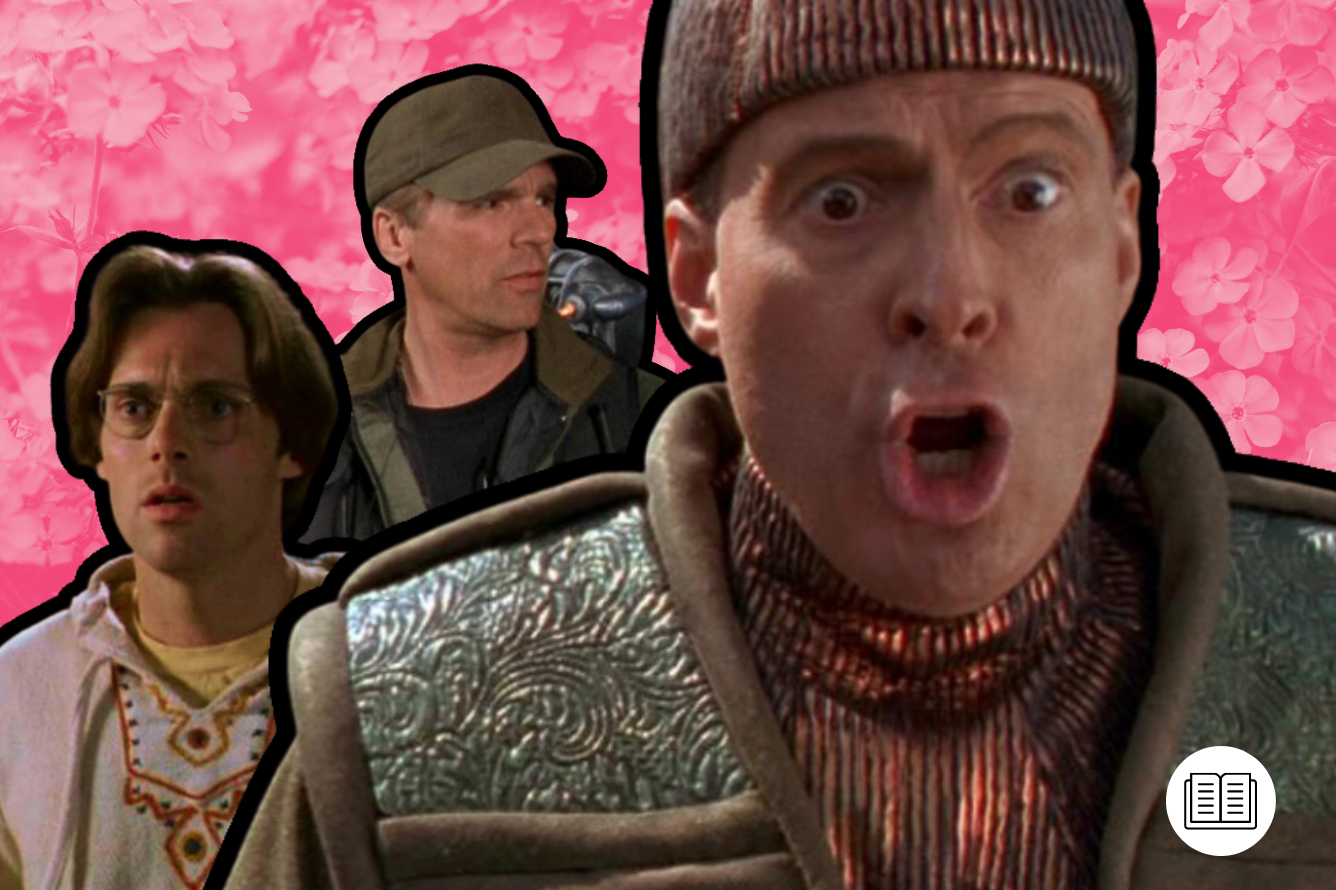
So his “heart” doesn’t necessarily come because he’s achieved some greater sense of enlightenment compared to the rest of the team. He’s responding to his traumas, always empathizing with the victim rather than the bully.
In ‘Upgrades’, however, he receives superhuman strength. With that, all his heart goes out the window. He responds to some playful banter, banter that triggers childhood bullying, but becomes the bully himself. Later, he attempts to retrieve weapons-grade naquadah, finally letting himself be the “strong one.” Rather than use his newfound strength in a more productive sense, he becomes greedy and vindictive.
It seems that, based on his behavior in ‘Upgrades’ as well as other episodes, the thing that makes Daniel a hero isn’t something inherent to his nature. It’s a response to the limits that life has placed on him. Remove those limits, and he becomes a different person.
Teal’c in ‘Upgrades’
Let’s be honest, there’s always been tension between Teal’c and the rest of the team. As many times as he’s risked his life for them and proven his loyalty and friendship, there are differences that can sometimes be challenging to overcome: cultural, physical, and temperamental. Stargate SG-1 episodes like ‘Crossroads’ (S4, Ep4), ‘Exodus’ (S4, Ep22), and ‘Talion’ (S10, Ep17) are prime—one might even say “First Prime”—examples of this dynamic.
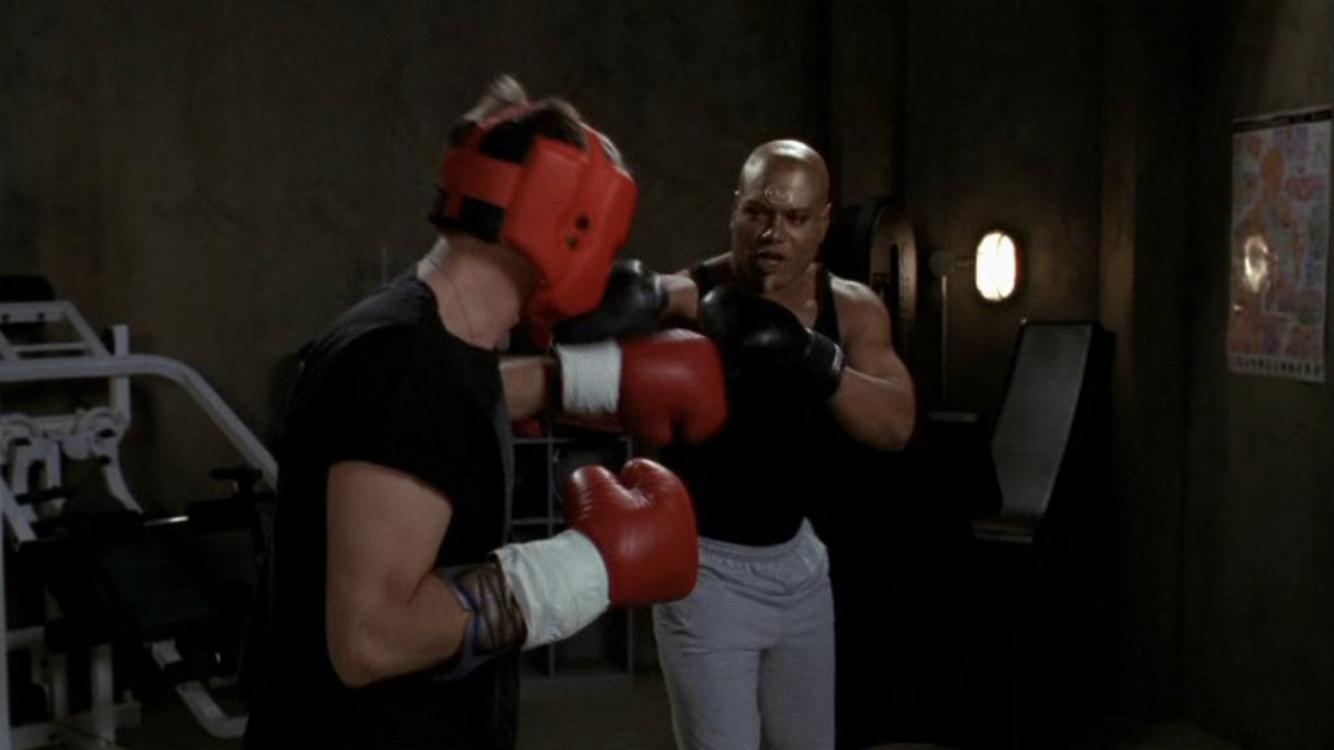
A more lighthearted example would be regular sparring matches where O’Neill always tries to get in a punch, but is unable to match the Jaffa warrior’s skill and physique. Of course, when wearing the Ateniek armband, he knocks Teal’c on his ass. Unapologetically, I might add.
Jack O’Neill: Teal’c, I’m really sorry.
Teal’c: You are not.
Jack O’Neill: He’s right about that.
This humorous moment foreshadows the growing schism between Teal’c and the rest of the team throughout the episode. When the trio leaves on the mission to destroy Apophis’ new big, bad mothership, they leave him behind. After all, all three of them are stronger than Teal’c will ever be. What’s the point of bringing him along?
This kind of utilitarian thinking is antithetical to the personal bonds that we know the team has formed. But it’s also a sign of how uncomfortably tenuous those bonds can be. As soon as the power dynamic shifts, the group falls apart.
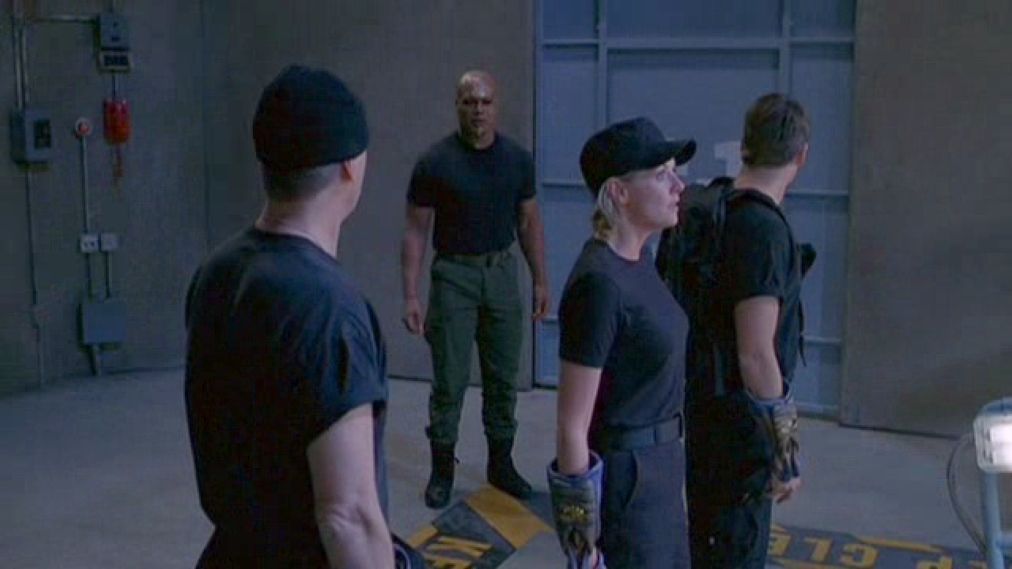
We don’t have to have superpowers to understand how this works. How many of us have been in a friend group where someone got a new job or got into a relationship or had a kid, and suddenly the dynamics of the entire group shifted? Of course, this is a natural part of life, but it goes to show that even in the most tight-knit groups, those bonds are much more tenuous than we’d care to admit.
In a more serialized and character-driven show, this would almost certainly cause a rift that would be felt in future episodes. Unfortunately, the show never expounds on this decision, namely because we have to hit the reset button at the end of every episode.
Janet Fraiser in ‘Upgrades’
At the end of the day, there’s really only one hero of this episode: and that’s Dr. Janet Fraiser (Teryl Rothery). Unlike the Tok’ra, she only has one goal: the well-being of her people. She constantly doubts and questions Anise (Vanessa Angel), and her instincts end up being correct: the armbands have put the team in serious jeopardy, acting as both a physical strain on their bodies and a narcotic.
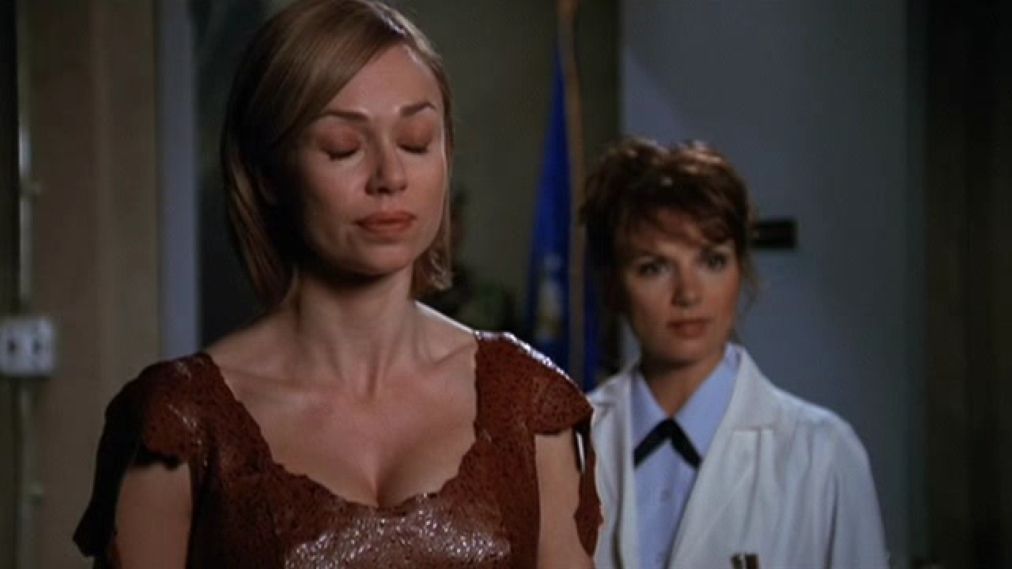
Many of us know people who’ve struggled with addiction or have done so ourselves. Dependence on harmful substances inevitably leads to self-destructive behavior, both for the individual and those around them. In those cases, it takes a person willing to love someone unconditionally—to the point that they cause them to see the error of their ways and rein them back in. The victim often can’t see the error of their ways, rejecting and even scorning their friend’s advice.
This is exactly what happens to Janet. Yet she persists in her job—and, I believe, love for the team—and continues advocating for their well-being, even to them.
The reason that SG-1 returns from the brink is because someone in their lives was willing to stand up for them. First, it was Janet, then later Teal’c. Together, they demonstrate that even when we fall prey to our worst impulses, there’s always hope—as long as we have people who are willing to keep us in check.
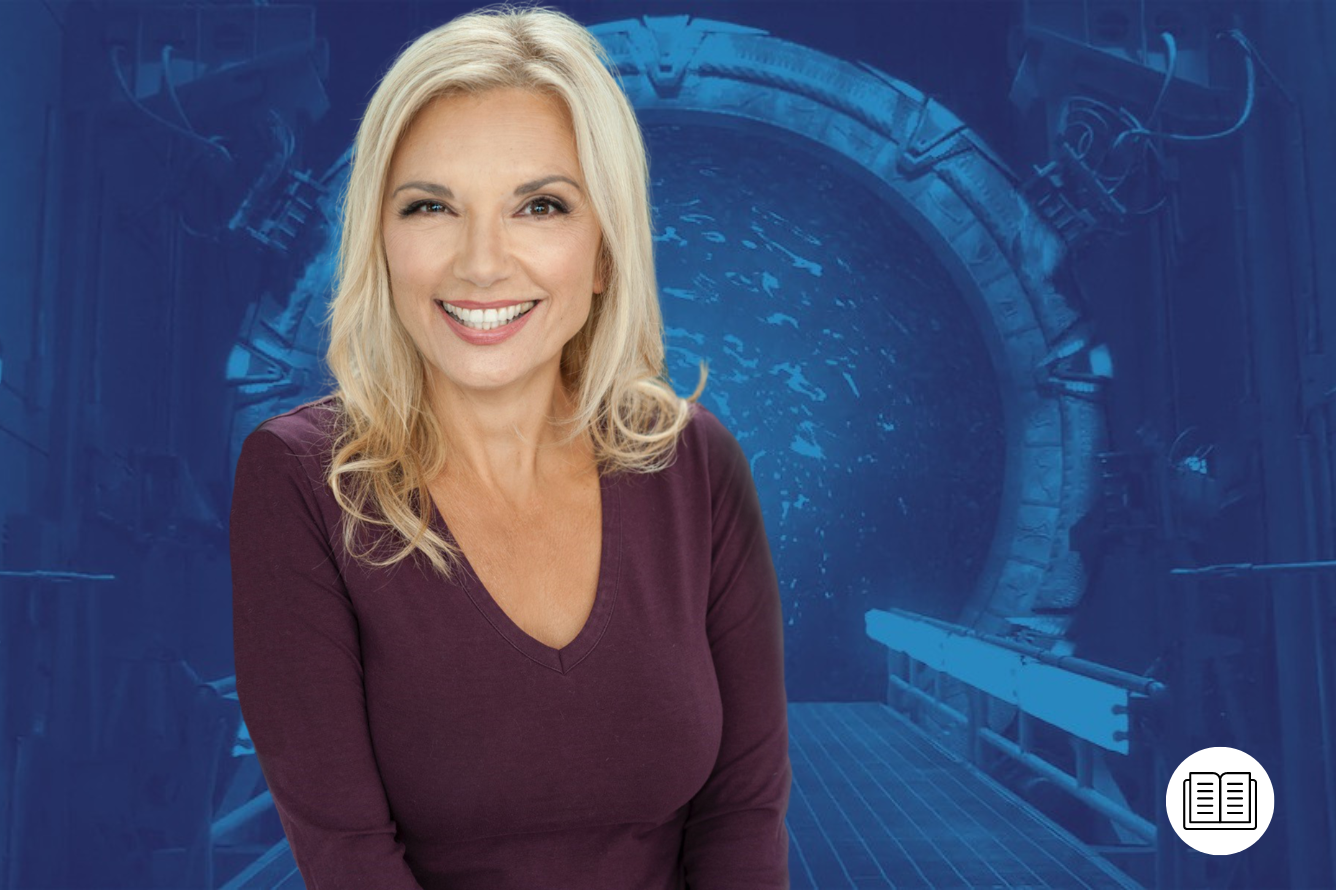
‘Upgrades’ in Conclusion
We all know the infamous saying: “The road to Ne’tu is paved with good intentions.” (At least, that’s the version of it that I remember.)
The desire to use these advanced technologies to fight back against the Goa’uld is a good one. But O’Neill, Carter, and Daniel quickly become willing to sacrifice themselves, their bodies, and their values in order to get there. Even noble ends can be pursued through less than-noble means, and often to the detriment of those involved.
Lord Acton famously wrote: “Power tends to corrupt, and absolute power corrupts absolutely.” ‘Upgrades’ puts this principle into action, showing that it’s impossible to wield power without a negative effect on the person wielding it.
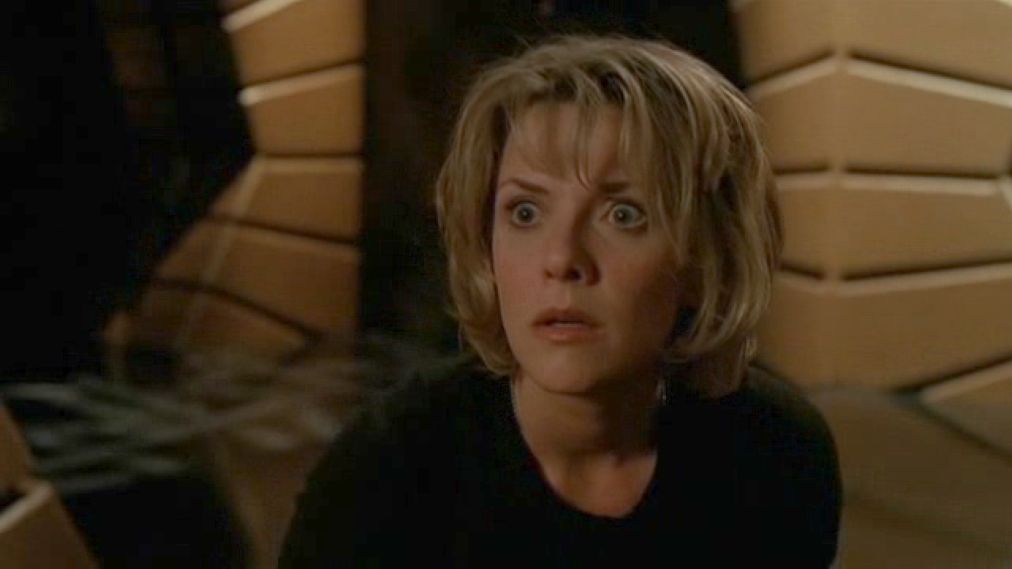
There are two main lessons I think we can learn from this. One: it’s a healthy reminder that our heroes are ultimately gray and that the battle between good and evil is waged within the human heart—even the ones we consider “good.”
Second, this episode demonstrates the importance of limits on power, whether that be physical, political, social, etc. Power is essential to accomplish good ends, but there’s always the temptation to let it control you, rather than the other way around. Even SG-1, as good as they are, aren’t immune to this temptation.
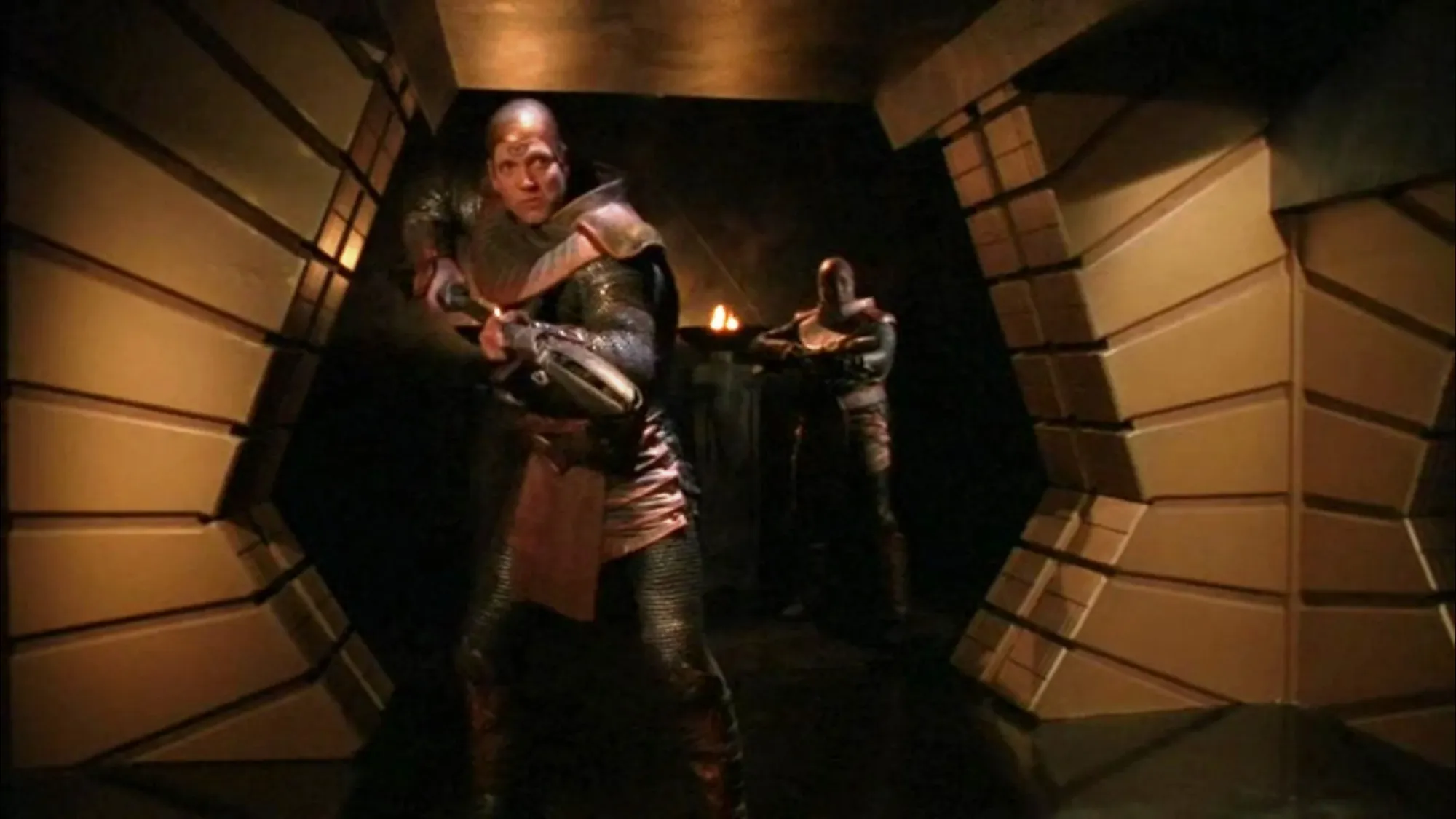
The question of what makes us good isn’t about whether we’ve purged all terrible thoughts from our minds, but whether we have the fortitude to keep those thoughts under control. Sometimes, this means exercising that will ourselves. Sometimes it means putting ourselves in situations where an external force prevents us from acting on them.
In fact, it’s laudable that they’re able to hold themselves together for the majority of the time, given everything they’ve been through. I guess, at the end of the day, that’s what makes them heroes.
This article was first published on June 1st, 2022, on the original Companion website.
The cost of your membership has allowed us to mentor new writers and allowed us to reflect the diversity of voices within fandom. None of this is possible without you. Thank you. 🙂


